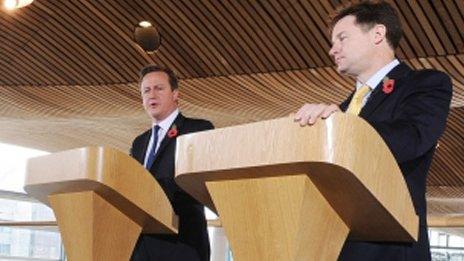Wales tax and borrowing powers plans clear key hurdle in Parliament
- Published
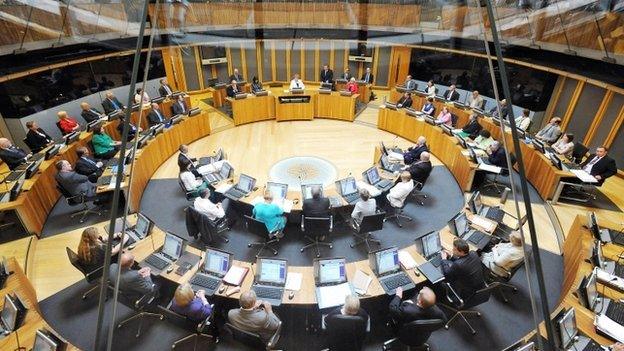
David Jones argues income tax powers would make Welsh ministers and AMs more accountable to voters
Plans to give the Welsh government responsibility for raising some of the money it spends have cleared an important parliamentary hurdle.
MPs backed the general principle of the Wales Bill to give the Welsh government powers to borrow money, and control some smaller taxes.
The bill would also, after a referendum, allow Welsh ministers to vary income tax rates within limits.
The details of the proposed new law will now be scrutinised by MPs.
From 2018 Welsh ministers would gain control of stamp duty land tax and landfill tax, under the plans.
The bill would also make changes to the way the assembly operates, moving to permanent five-year terms and lifting the ban on candidates standing in both constituencies and on regional lists.
But Welsh Secretary David Jones faced criticism as he outlined proposals for the referendum - should the assembly decide to call one - on devolving an element of income tax, and for the introduction of a Welsh rate of income tax, if the referendum returned a "yes" vote.
Shadow Welsh Secretary Owen Smith, told Mr Jones that in the MP's maiden speech as an assembly member, he had said: "We have no tax-raising powers - long may that state of affairs continue."
Mr Smith then asked: "When did he change his mind?"
Another Labour MP, Geraint Davies wanted to know what Mr Jones would "say to the Mayor of London, Boris Johnson, who has now asked for stamp duty to be devolved to London, which would give him £1.3bn".
Mr Davies asked: "Is this not a charter for the proliferation of all sorts of competitive taxes across different parts of the United Kingdom?"
'Lockstep'
Plaid Cymru's Jonathan Edwards claimed the secretary of state had "handcuffed" the assembly with a "proposed lockstep".
Under the lockstep, each income tax band could only be moved at the same time and by the same amount.
Mr Jones said he hoped AMs would take the opportunity to seek the devolution of income tax powers.
He said: "I should like the assembly to call a referendum as soon as it is able to do so, and I personally would support a yes vote in such a referendum.
"It would make the Welsh government, and the assembly, significantly more accountable to the people who elect them."
He told opposition MPs "we all change our minds", dismissing the accusation over tax competition as "a concern of the mayor of London" that "does not really fall within the scope of today's discussion".
On Sunday, at the Welsh Labour conference in Llandudno, Mr Smith said a future UK Labour government would give Wales financial powers like Scotland's, subject to a referendum,
He said 15p of the 20p basic rate of income tax could be devolved, but first Wales needed what he called "fair funding".
The Welsh government argues Wales is underfunded by some £300m a year by Whitehall.
But under proposals in the Wales Bill, the Welsh government would be able to vary income tax by up to ten pence in the pound, if voters backed the plans in a referendum.
- Published30 March 2014
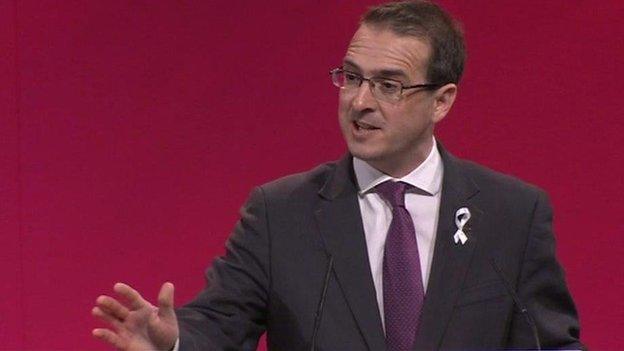
- Published20 March 2014
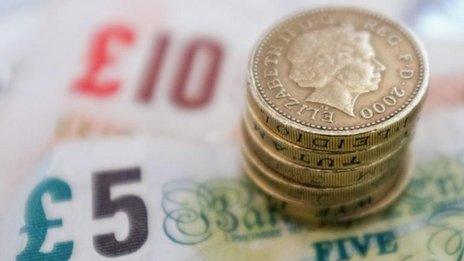
- Published19 February 2014

- Published18 February 2014
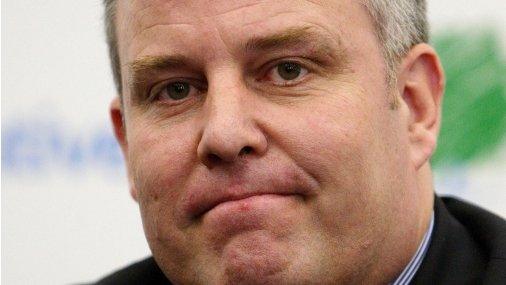
- Published13 February 2014

- Published11 February 2014
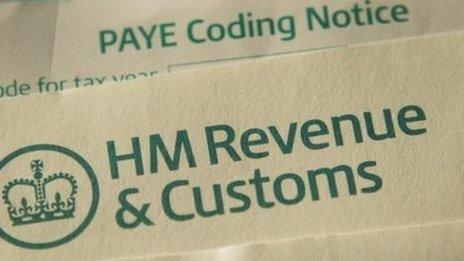
- Published8 February 2014

- Published9 February 2014

- Published1 November 2013
